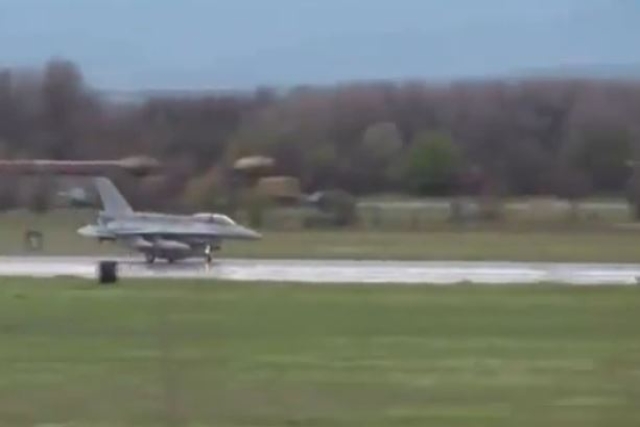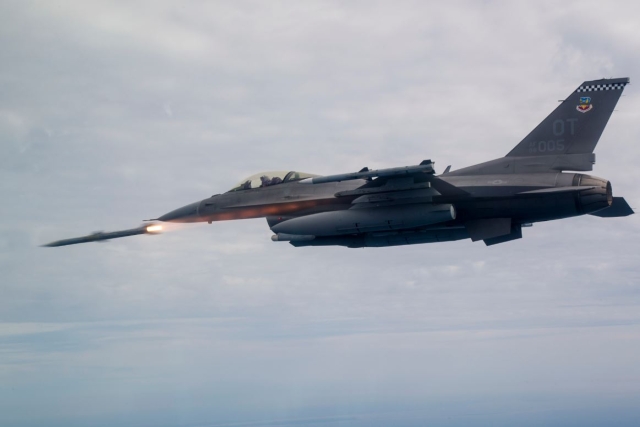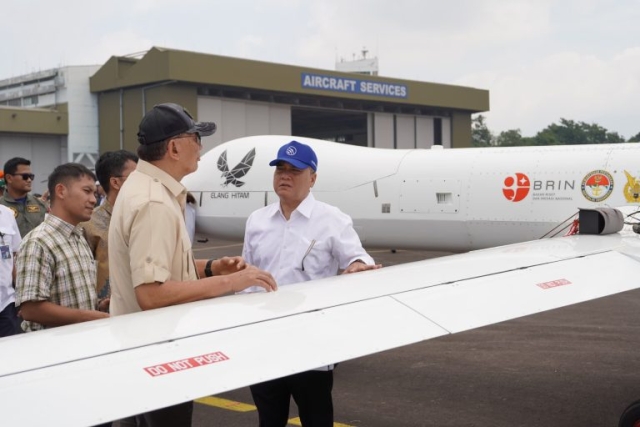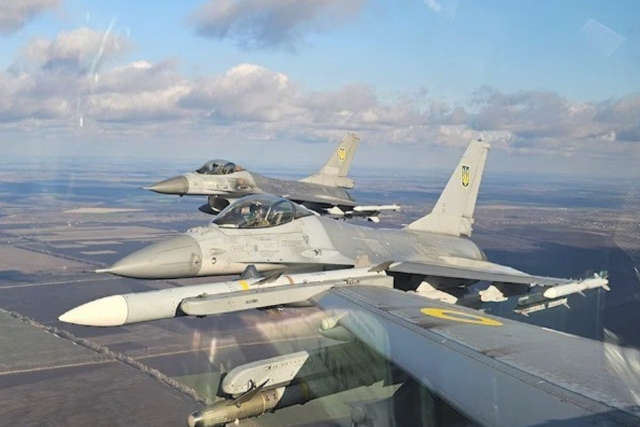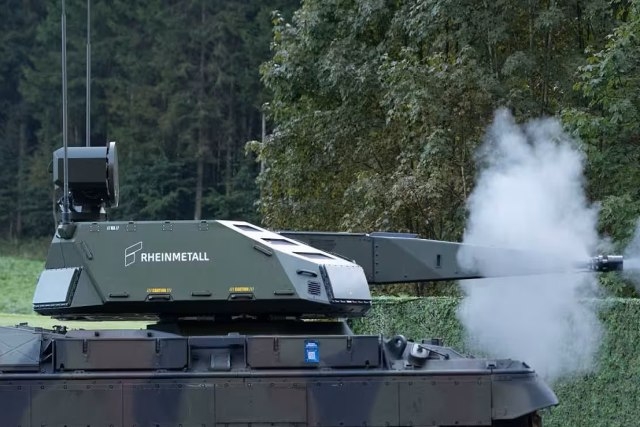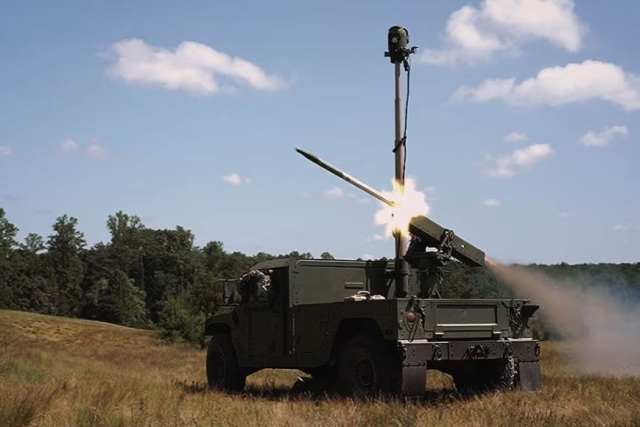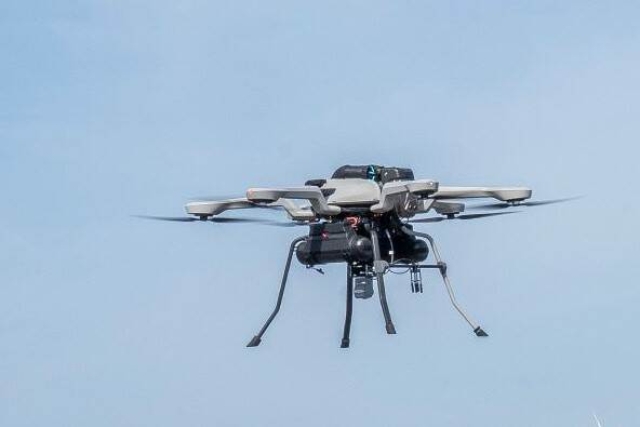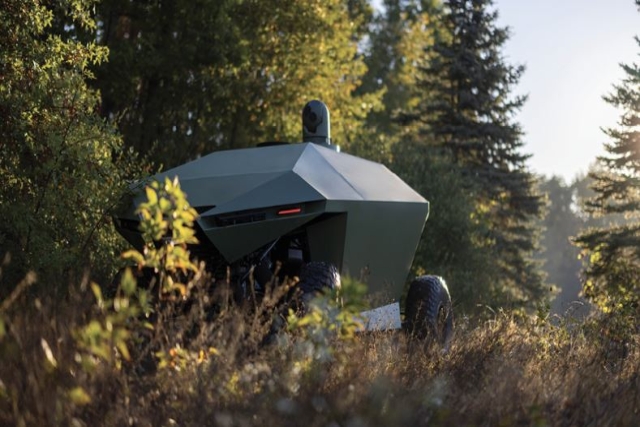Autonomous F-16 Inches Closer to First Flight
Six modified jets to test AI-enabled combat capabilities in upcoming trials
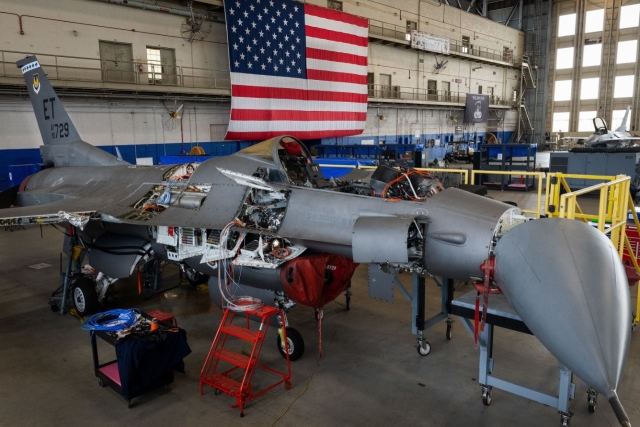
The U.S. Air Force is preparing for the first flight of an autonomous F-16 under the VENOM (Viper Experimentation and Next-gen Operations Model – Autonomy Flying Testbed) program, with six aircraft undergoing modifications at Eglin Air Force Base.
The first three aircraft for VENOM arrived at Eglin for modification in April 2024, and according to the base's latest update, work on them is still ongoing. The last of these F-16s arrived on April 1, marking a key step toward testing AI-driven flight capabilities. Three of the aircraft are currently being fitted with new hardware, software, and an auto-throttle system, which will enable the AI to control flight surfaces and thrust.
According to Maj. Trent McMullen, advanced capabilities division chief of the 40th Flight Test Squadron, modifications follow a detailed design process and will allow the AI to operate a fighter jet with real mission systems.
Simulations, which began in 2024, are helping refine AI-driven air combat tactics. These involve one-on-one and two-on-two combat scenarios, both within and beyond visual range. McMullen emphasized that running thousands of these simulations provides engineers with data to improve AI decision-making.
The next phase includes software and hardware-in-the-loop testing to ensure safe interaction between the AI and aircraft systems. Hardware tests aim to confirm that autonomous commands cannot exceed safety limits. A test pilot will oversee real flight trials, retaining the ability to intervene at any moment.
Once ground testing is complete, VENOM will enter a phase of simultaneous developmental and operational testing. Lt. Col. Jeremy Castor, VENOM operational test lead, stated that collaboration between test pilots and engineers at Eglin AFB is key to accelerating progress.
A fully modified F-16 is expected to be ready for testing within 18 months of the program’s launch, which suggests trials may begin by October. The VENOM aircraft, unlike uncrewed drones, will always have a human pilot onboard to oversee AI functions.
Connection to Collaborative Combat Aircraft and X-62A VISTA
The VENOM program is part of the Air Force’s broader effort to develop AI-enabled combat systems, complementing the Collaborative Combat Aircraft (CCA) initiative. The CCA program aims to deploy autonomous drones to operate alongside crewed fighter jets, enhancing mission capabilities and reducing pilot workload.
The Air Force has already unveiled its first two CCA prototypes, the YFQ-42A from General Atomics and the YFQ-44A from Anduril Industries. These platforms are expected to undergo further testing to refine autonomous operations.
VENOM follows a separate but related effort, the X-62A VISTA program, which has been used to test AI-controlled flight in an F-16 derivative. In late 2022, the X-62A completed over 17 hours of AI-powered flight, demonstrating the potential for autonomy in aerial combat. Unlike VENOM, which focuses on human-on-the-loop autonomy with pilots overseeing AI functions, X-62A tests fully autonomous flight dynamics.
The Air Force sees VENOM as a step toward integrating AI into future combat operations, ensuring that AI-assisted fighter jets can operate safely and effectively alongside crewed aircraft.
